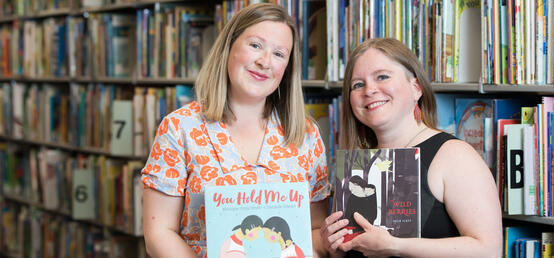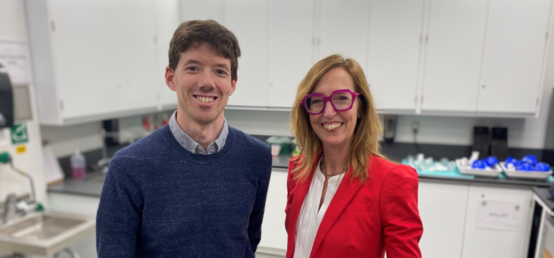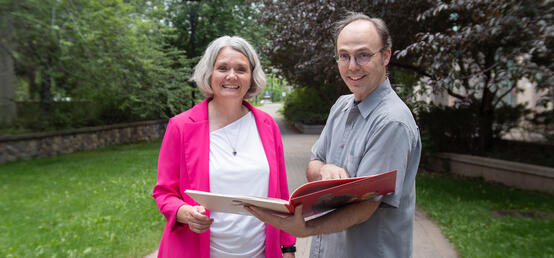Program description
Funded by the Provost's Office, the University of Calgary Teaching and Learning Grants program is designed to provide support to enhance student learning experiences through the integration of teaching, learning and research, and to support faculty as they engage in Scholarship of Teaching & Learning and develop educational leadership capacity.
Through two- and three-year grants, the program supports the development, implementation, critical examination, and dissemination of innovative, evidence-based approaches to student learning to achieve the following goals:
- Integration of research evidence into teaching practice
- Generation of new knowledge about teaching and learning at the University of Calgary
- Dissemination of the results of that work to benefit others
- Development of educational leadership identity
Timeline
Streams
Applicants can select one or more of the following streams:

Development and Innovation
This grant stream will support teaching and learning projects to develop something new or innovate something already in place in an academic course or program at the University of Calgary. The scope may vary from individual activities to entire programs, such as the creation of a new resource, the implementation of a new practice, or the (re)design of activities, courses, or programs. Recipients will share their work with relevant campus audiences to benefit the practice and understanding of others.

Scholarship of Teaching and Learning (SoTL)
Recipients will draw on their discipline-based expertise to develop a scholarly project anchored by a meaningful question about student learning and the activities intended to facilitate that learning in an academic course or program. The SoTL project is designed to answer that question by making relevant student learning visible and then systematically analyzing this evidence. These projects aim to improve student learning by strengthening the practice of teaching. To benefit the practice and understanding of others, SoTL grant recipients will share their work with relevant campus audiences and disseminate more broadly within relevant scholarly communities.

Educational Leadership
Recipients will develop their educational leadership capacity through the implementation of strategic teaching and learning initiatives that include the development of professional learning opportunities to help other academic staff/educators strengthen their teaching and learning practice in academic courses or programs. Fundable projects may involve a range of contexts and activities, not just those that occur in the classroom. Educational Leadership grants are intended to have an impact beyond the scope of an individual academic course and recipients will share their work with relevant campus audiences and disseminate more broadly within relevant scholarly communities.
Areas of focus
The Teaching and Learning Grants provide an opportunity to help advance the institutional teaching and learning priorities outlined in UCalgary's 2023-30 Strategic Plan Ahead of Tomorrow. Applicants can select one or more of the following areas of focus:
- Open Educational Resources (OER) are learning, teaching and research materials in any format and medium that reside in the public domain or are under copyright that have been released under an open license that permits no-cost access, re-use, re-purpose, adaptation, and redistribution by others (UNESCO).
- If you have chosen to apply for the TI Grants Area of Focus for the development of an open educational resource (OER), there are additional considerations for adapting or creating an OER. Please review the following considerations and conditions.
Eligibility requirements

Who can be involved?
The Teaching and Learning Grants program is intended to support effective teaching and learning initiatives proposed by individuals or groups who contribute to the learning experiences of University of Calgary students. Recognizing that everyone at the university makes these contributions, we invite applications that involve academic staff and librarians, archivists, curators, teaching assistants, post-doctoral scholars, student service professionals and administrative staff. In addition, fundable projects may involve a range of contexts and activities, not just those that occur in the classroom.
There are specific guidelines about who can serve as Principal Grant Holders (PGH). See below for details.
While collaboration with colleagues from other institutions is valued, grant funds may only be used for expenses incurred by University of Calgary collaborators on a project.
Who can be a principal grant holder?
Principal grant-holders (PGH) must be continuously employed by the University of Calgary for the duration of the proposed grant. Sessionals, graduate students and others with appointments that don’t continuously span the full duration of the grant may be co-applicants but not PGHs. In addition, Research Services stipulates that only the following may serve as PGHs:
- Academic Appointee - any employee of the University holding an academic appointment (continuing, limited term, contingent term or sessional) or a non-employee of the University holding a clinical or adjunct appointment.
- Manager, level M1 or above.
- For Qatar any employee is eligible, provided sponsor guidelines allow for this provision.
- Any individual may be the PGH on only one Teaching and Learning Grant project at a time
Current grant holders who will complete their project, including the submission of the required final report and closure of their project account, by the start date of the next grant cycle may apply as a PGH for a new Teaching and Learning Grant.
A PGH on one grant may participate as a collaborator on one or more concurrent Teaching and Learning Grants.
If a PGH ends employment with the university, a new PGH may be proposed to the Teaching and Learning Grants program, or it may revert to the fund.

Adjudication

Adjudication committee
This process uses a double-blind approach to adjudication. Applications are evaluated by one of several Adjudication Committees. The committee will consist of members from across faculties, units, and disciplines.
Successful applications may be partially funded or fully funded, depending on the Adjudication Committee's assessment of quality, the appropriateness of the budget items, and the amount of funds available.
For more information, please refer to the Adjudication Committee Terms of Reference
Volunteer to adjudicate
Adjudication for the Teaching and Learning Grants program occurs in early February. The contributions of our adjudicators are essential to the success of the program, and the adjudication processes are strengthened by diverse perspectives from across the university community.
Adjudicators can expect to spend 8 – 10 hours reviewing applications and participating in virtual committee meetings.

Open Educational Resources (OER)
Open Educational Resources (OER) are learning, teaching and research materials in any format and medium that reside in the public domain or are under copyright that have been released under an open license that permits no-cost access, re-use, re-purpose, adaptation, and redistribution by others (UNESCO).
If you have chosen to apply for the TI Grants Area of Focus for the development of an open educational resource (OER), there are additional considerations for adapting or creating an OER. Please review the following considerations and conditions.
- Will you be adapting an existing OER, creating a new OER, or developing ancillary/supplemental materials (e.g. question banks, videos, sample exams, etc.)?
- Adapting an OER means grant proposals will focus on modifying one or more existing open educational resources. Existing OER may be adapted in a number of ways including updating or localizing content, incorporating interactive components, improving diversity and inclusion, developing ancillary or supplemental materials to add to an existing open textbook, etc.
- Ancillary materials, also known as supplemental or supplementary content, are resources that can be used to support additional teaching and learning needs within a course. They can be used in conjunction with an open textbook, but also as separate components of a course. These resources may include question banks, videos, images, simulations, lesson plans, lecture notes and slides, open homework platforms, assessments, workbooks and lab manuals, or interactive content.
- Creating an OER means grant proposals will focus on developing a new open educational resource that does not exist in their desired form within their discipline. These projects will generally be more involved as the content largely does not already exist in another OER, so this type of OER project will likely take more time and effort.
- When you are developing OER, the resource you create can be changed and updated over time as the content within your course and within the field evolves. We recommend developing a sustainability plan for ongoing support for the OER, so that you can continue to benefit from it for years to come.
- Have you already conducted a search for open educational resources that relate to your proposed OER project? You can access the OER By Discipline Guide or the Open Course Matching Service for support in getting started with your OER search.
- It is expected that OER projects will be shared under a Creative Commons (CC) license. What Creative Commons License are you planning on applying to your OER project?
Grant Recipients agree to …
- Ensure that the open educational resource (OER) is available and accessible under a Creative Commons license that allows for the creation and (re)use of derivative works.
- Obtain written permission from all contributors of the OER project, including students, for the publication of their work under this license and each contributor’s preferred form of attribution.
- Share their OER openly and have a current version with its source files, in an editable format, deposited in an appropriate open repository for preservation and reuse.
Ensure their OER project will follow the guidelines set out in the BCcampus Open Education Accessibility Toolkit, 2nd edition
If you have not developed an open educational resource project before, we recommend meeting with Libraries and Cultural Resources to discuss your proposal.
For support and referral to resources for assistance with OER (e.g., Copyright and Repository Services) and your grant application.
- Visit the Libraries and Cultural Resources Open Education site.
- The Open Education @ UCalgary guide provides information and resources to help support you learn about OER, find and evaluate existing OER, adopt OER, and create OER projects. go to the Open Education guide
- Consult with the Open Education Librarians and your subject librarian in Libraries and Cultural Resources. Contact the OER Librarians
Stories in teaching and learning research
Local Indigenous teaching resources vetted by the community and at your fingertips
Werklund School of Education researchers encourage lesson plan contributions from the community for Books to Build On database
How kinesiology duo's walks on campus led to an award-winning idea
Cari Din, Martin MacInnis nationally recognized for teaching and learning innovation
Creating Kinderbuch OER: Undergrad storytellers create rich German-language children’s books for use by primary-school educators
UCalgary Teaching and Learning Grant supports creation of custom layouts and illustrations for 10 stories destined to become open-access German-language learning resources





